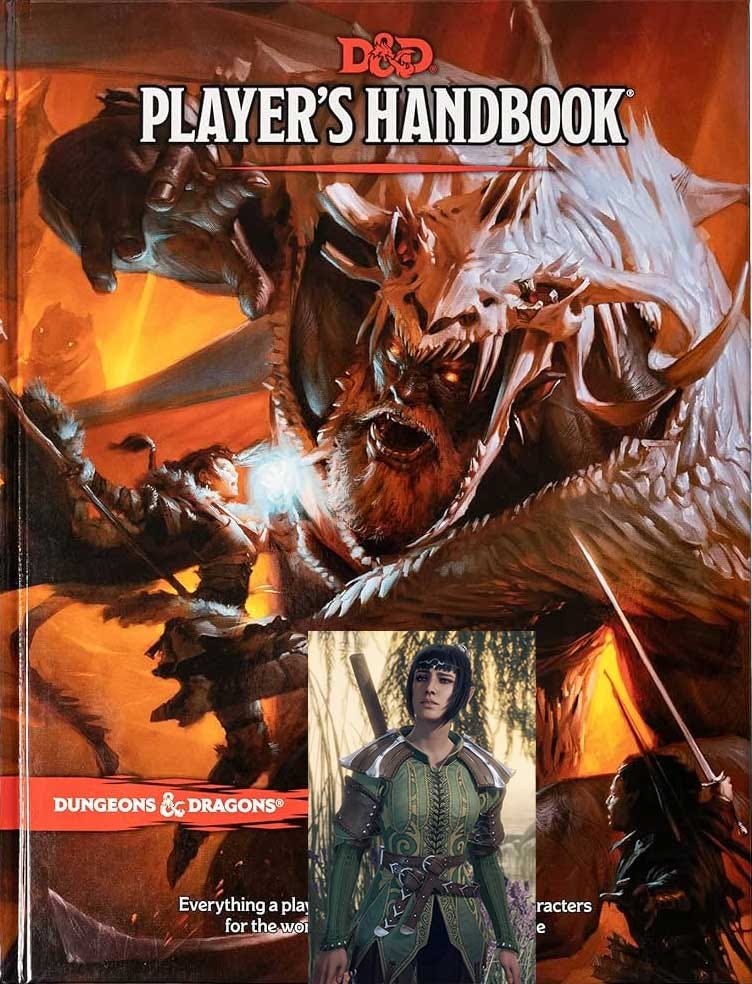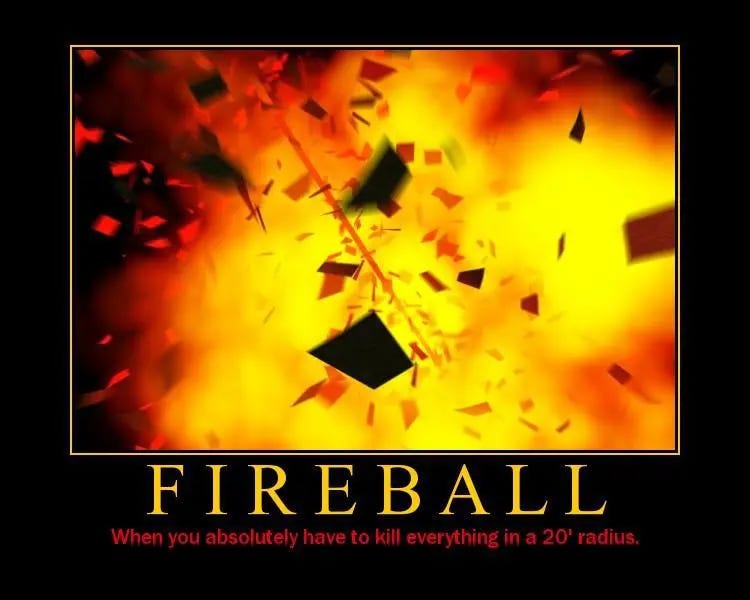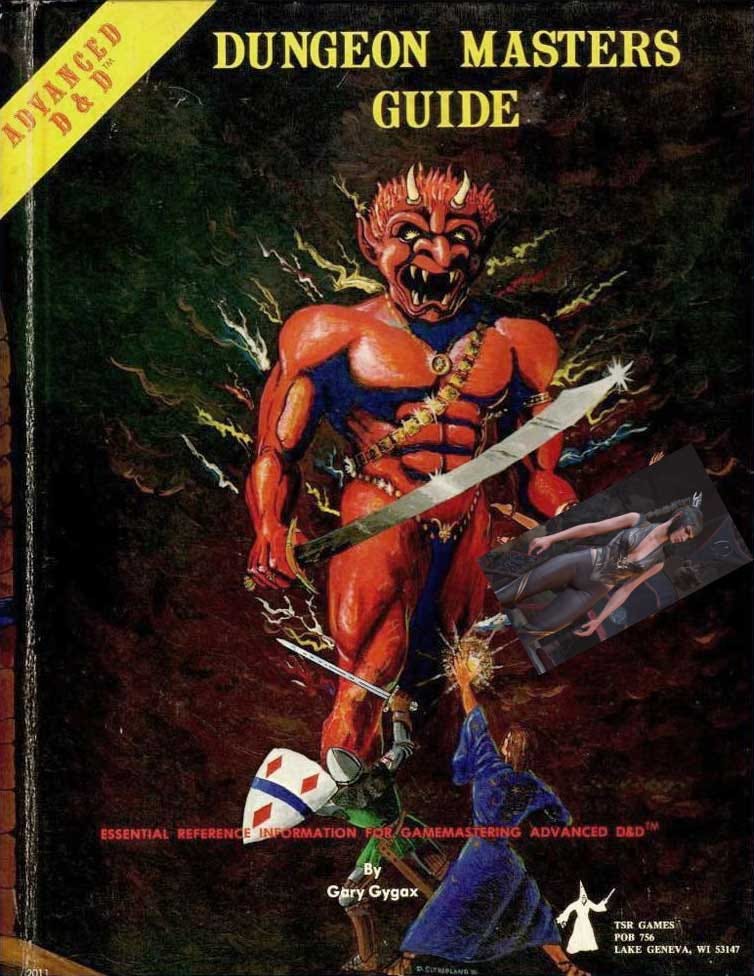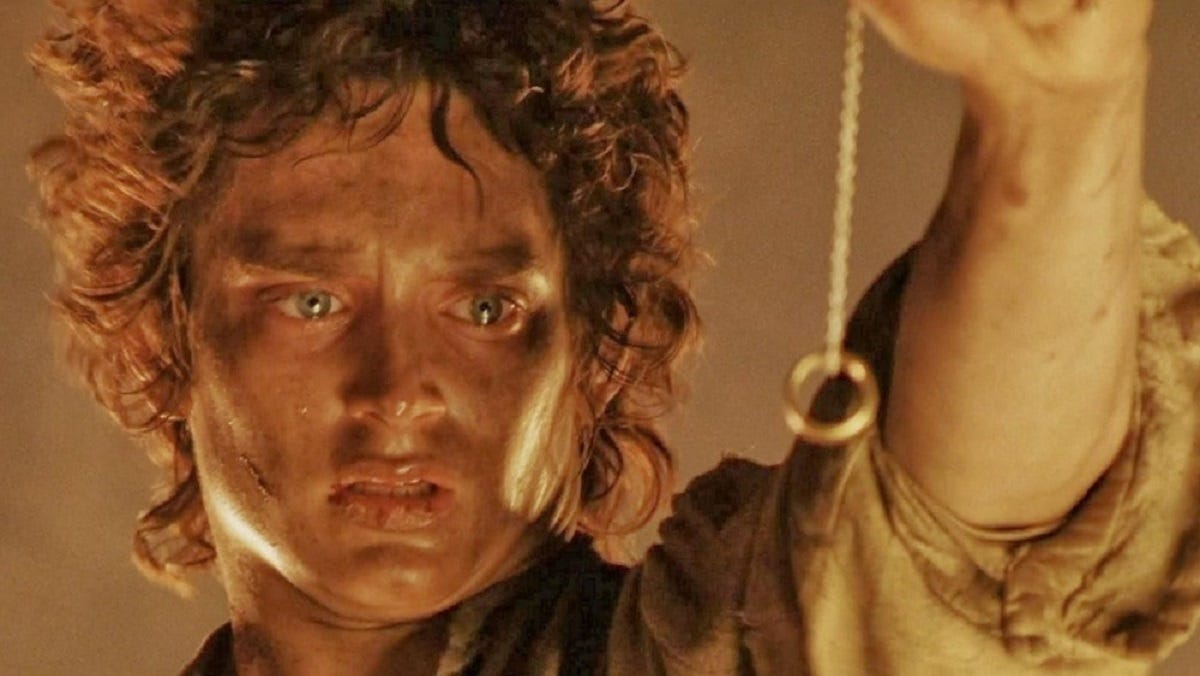Picking Apart Baldur's Gate 3, Part 2 (Talkin' 'Bout D&D)
It turns out that game balance was a mistake all along.

It's always a huge holiday for me when a turn-based, story-heavy RPG manages to break through and be popular with the Normals. This makes lots of new RPG fans. Then I can sell my games to them eventually, much as a catfish eats the scum at the bottom of a lake.
It's also a great opportunity to pick apart a good game's design. Find out what works and what doesn't work and what the state of the art is for RPGs right now. If a game sells well, that means every choice it made was correct, and you should pick over the carcass for ideas to steal with all speed.
Baldur's Gate 3, by Larian Studios, is a huge, sprawling game. It has a real "No wrong answers" feel, where just about every idea made it in somewhere. I want to spend a post or three picking apart the game system, pulling out specific structures and ideas, and looking at them in the light.
This will all be a bit disjointed with lots of small individual topics. But it's worth it, because this is a very interesting game.
Taking A Wrench To Dungeons & Dragons
Of course, you can't talk about the gameplay without noticing it's an adaptation of Fifth Edition Dungeons & Dragons. (5E for short.)
I've played a ton of 5E over the last few years and find it to be basically well put-together and a lot of fun. I think adapting it to this game was a really smart idea. It teaches people to play D&D, lets experienced D&D players pretend they're in a campaign, and it gave Larian a game design to work with that is already polished, functional, and pretty fun.
Some people are going to yell at me for saying that. Certain people get really snooty and picky, and religious about tabletop role-playing game systems. And hating on D&D is very much the fashion of late.
However, like it or not, D&D is still the dominant role-playing game brand. It’s perfectly adequate. Aggressively perfectly adequate. Most people who play it would be surprised to find that anyone hates it (or that other RPGs exist at all).
Another game decided to use an existing game is Solasta: Crown of the Magister. It is basically 5E D&D, but an indie game, and it's a lot of fun and a big success. And, of course, there are the Pathfinder games.
Consider the possibility that making your own RPG system from scratch is a route for suckers. I mean, I'm going to keep doing it because it's fun and lets me shape the system to work better with the plot. But I still might be a sucker.

Getting To Rewrite D&D
The designers of Baldur's Gate 3 got a rare and precious opportunity, one to be much envied by generations of gaming nerds. They got to rewrite Dungeons & Dragons. (A full list of changes is here.)
Imagine that. Getting to take a wrench to any rules that are fiddly and annoying, and, if anyone complains, say, "Well, we had to do it to make a video game. LOL. Shrug emoji." It enabled them to slash a lot of stuff that was fine to lose but the tabletop designers would never give up willingly.
(Of course, I' don’t know anyone personally who works on BG3 or D&D. I’m just imagining the scenario that amuses me the most.)
As much as I enjoy it, 5E has a serious case of Modern Tightass Designer Syndrome. MTDS is when the designers are paralyzed with fear of their players having too much freedom. Or fun.
MTDS is when you balance and rebalance and add rule after rule to prevent unpredictability or eccentricity. The terminal case of this is World of Warcraft, where the power of all the artifacts you are questing for has basically been reduced to a single number.
The only thing that gives 5E any wild, anarchic energy is the need to keep design elements from ancient Dungeons & Dragons, 1980s energy, back when everything was overpowered and weird and we liked it that way.
One of the things I love about Larian is that their games never have MTDS. The spells you got in the Divinity: Original Sin games got stupidly overpowered and broken, which made them awesome.
A Good Example of MTDS
The main goal of D&D, of course, is to get lots of powerful magical artifacts so that your character is a badass and can trash bozos.
But too many magic items leads to power and unpredictability, and we can not have that. Because MTDS.
So current Dungeons & Dragons has something called "Attunement." Long story short, your character can only ever own three good magic items.
I linked to the attunement rules. They are delightfully overlong, overdetailed, and deranged, and I suggest you savor them.

How To Romance Your Magic Item
I have sat at a table and tried to explain to people, actual friends and human beings, the attunement rule. "I just got an awesome item!" "You can't use it." "What!?" "Well, you can but you have to get rid of another awesome item." "But I LIKE my other awesome item." "That is how D&D works." "That is stupid!" "Yes."
(“BUt You CAN MAkE Up yOur OWn hoUsE ruleS!” Dude, these books aren’t cheap. Don’t make me design your stupid game for you.)
Of course, D&D is based in part on Lord of the Rings, so there is a precedent in place. Remember when Galadrial gave Frodo the Phial of Light but he had to get rid of it because he had a magic sword AND magic armor AND a magic ring? Yeah, me neither.
But implementing attunement in a computer game would be a confusing pain in the butt. So BG3 got rid of it. And guess what? THIS DOES NO HARM TO THE GAME WHATSOEVER.

A Lot Of Rules Constipation Was Cleared Away
BG3 trims away so much rules junk. They completely rewrote how short rests work, making them far simpler. They got rid of grappling, because grappling has always been stupid. Readying actions? GONE! Strength requirements for armor? GONE! The bizarre inability to cast multiple spells when hasted? GONE! Exhaustion. GONE. The cover system? GONE! (OK, as a lifelong wargamer, that last one hurts.)
Again ... Confusing, time-wasting grappling rules are gone. Ahhhh. When you say it enough times, it sounds like singing.
I didn't miss ANY of it. Except maybe… I really think there should be a cover system, but I played a whole 80 hour game without noticing they'd taken it out, so [shrug emoji].
I'm sure everyone at Wizards of the Coast who works on Actual D&D has played BG3 two times, which is good. I hope they take any rule change as a potential suggestion. There are a lot of changes that simplify things without costing fun or add interesting choices without overly increasing complexity. The only risk is that the players of your fantasy stabby game might actually feel powerful for a while.
Should all of the changes be kept? No, of course not. But it might be good to sacrifice a few sacred cows if I never have to explain to confused newbies any of the nonsense they chopped out again.

But It Won't Happen
It's very easy for a designer to get into a mindset where you don't want to let your players have too easy a time. Sometimes, when I'm writing a game, I start acting like a hardass and tacking on difficulty. But I've learned to, just before release, take a quick pass through all the bosses and make each one a little easier. A little sacrifice to the small gods of power fantasy.
The hardass mindset leads to too many rules. Just as writing is almost always improved by editing it down, just about any game system can be improved by chopping out a few rules. As the old writer's advice goes, "Kill your darlings."
So there. A bunch of rambling about D&D, adaptations, rules, and complexity. A lot more about Baldur's Gate 3 will come over the next few weeks.
Our newest indie role-playing epic, Geneforge 2 - Infestation, is now out! It’s cheap and fun.
Spiderweb Software makes fun role-playing games and also has a mailing list and a Twitter and a Facebook if you want to learn when we do something big. Extra thanks to people who actually pay for this Substack. It gets me off my figurative butt and keeps me writing.



I think “balance” can become a stand of trees that blocks sight of the forest.
The whole point of a game is to create a compelling experience, but I can see it being very easy to get lost in trying to create systems that “make sense” and moreso systems that are “balanced.” Systems that make sense can be very satisfying, sure… sure. But they can easily be a tedious, unfulfilling drag to put up with. Same with “balance” if the underlying concept would otherwise being 100% dominant in all circumstances, but has to be nerfed to make it work within the confines of the game.
A lot of “games with sword AND guns” have a tendency to do this. The first time I recall seeing this in Skies of Arcadia, it didn’t bother me. Still, having a game do more to showcase how guns >>> swords, specifically Greedfall, will always make me question the logic from here on out.
“Is this fun?” is a more important question than, “is this ‘balanced?’” Still… balance *is* still important if you want to give a player more than one way up the hill that’s not overly handicapping themselves. Balance against the game is less important because the game has no feelings, but balanced against other playstyles is still legitimate. Unfortunately, the “the game must always win!” mentality means that any player option that’s overpowered compared to others is more likely to be nerfed rather than the lollygaggers getting brought up to par...
Your point about power fantasy is huge. I used to manage a coffee shop and every store at this company had a daily trivia question that, if answered correctly, would give the customer 10 cents off their order. I finally realized that most people like trivia because they like to feel smart and they feel smart when they answer trivia questions correctly. There are other reasons, and I'm sure there are lots of exceptions. But the average person just wants to feel smart by sometimes getting the right answer to a trivia question.
I think the same is true for video games. Most players want to feel a sense of accomplishment more than they want to know the game was designed for maximum challenge.